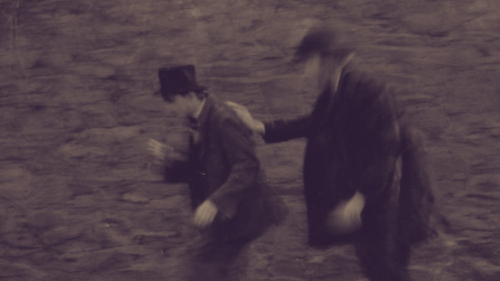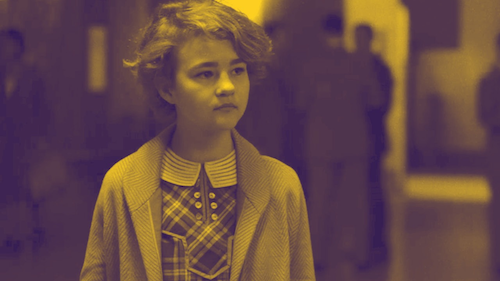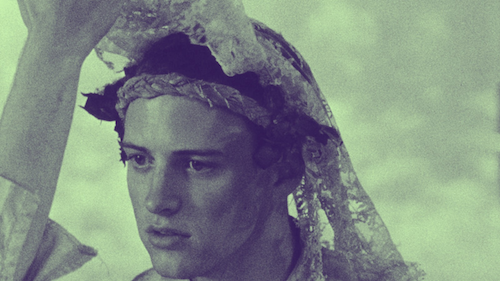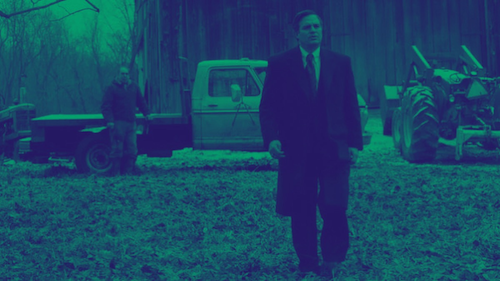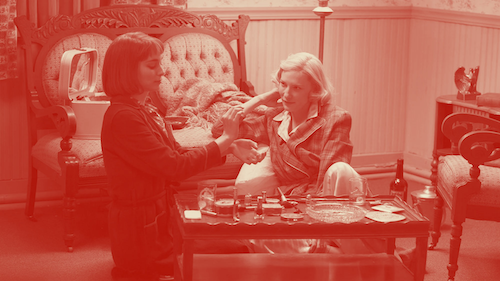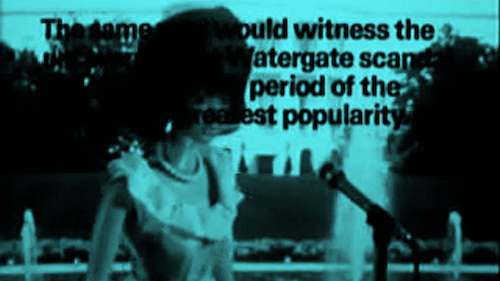Filmography Worship: Ranking Every Todd Haynes Film
Written by Andreas Babiolakis
Filmography Worship is a series where we review every single feature of filmmakers who have made our Wall of Directors (and other greats)
When I think of the best directors to make it out of the underground or experimental film circuits, a few names come to mind. David Lynch. Pedro Almodóvar. John Waters. Then there’s Todd Haynes: the kind of director whose capabilities are so widespread that you wouldn’t believe the same filmmaker made both Dark Waters and I’m Not There. Haynes leapt out of the underground movement with the notoriety surrounding Superstar: The Karen Carpenter Story, and he rode that wave of awareness to the big time. He helped bring Julianne Moore to the forefront of the acting world with Safe. His adoration for music helped piece together a killer soundtrack in Velvet Goldmine. He secured his first Oscar nominations for Far From Heaven. Outside of his debut feature film Poison (which is the most experimental of these early films) which I’ve conveniently ignored, what do these films have in common? They thrived because of Haynes’ complete understanding of film, his affinity for experimentation, and his usage of both indie cinema and Hollywood as his sandboxes to see what works and what doesn’t. He only has a couple of misses, but almost every experiment Haynes has ever implemented has yielded fascinating results.
It’s not fair to say that most directors don’t understand filmmaking fundamentals like Haynes does, but it’s clear that many don’t dare to break filmmaking rules, formulas, and blueprints as frequently and in so many capacities. Whether Haynes is making a documentary, an independent release, a mainstream drama, or a family film, he is going to shatter either a couple of filmmaking staples or as many as possible. It’s remarkable that he almost always knows when to go against the grain and in which ways to do so. He has brought the New Queer Cinema movement to great places, especially during said wave’s rise. He has encouraged audiences to step outside of their comfort zones. He has never wavered from what he stands for, be it equality, environmental awareness, the limitations of cookie-cutter filmmaking (and how to bypass these moulds), and the endlessness that films can possess when he follows his instincts.
Haynes is known for his melodrama, hyperbolism, and aesthetics, but he is also an artist who possesses a strong critical, sociopolitical voice. His art leaves you wondering where he is coming from as he leaves you to come up with your own conclusions, but his commentary is impossible to miss. As a result, his films almost have two lives: the film Haynes wants you to digest, and the film Haynes wants you to make your own. With this in mind, it may be quite difficult to rank (nearly) every Haynes film. I guarantee my list will not resemble your own for two reasons. Firstly, I think almost every Haynes release is strong. Secondly, it is next to impossible to not have such subjective connections to Haynes’ works, so I guarantee that some films resonated better with you than they did with me (and vice versa). Haynes understands cinema as a medium that depicts artistic integrity and storytelling capabilities, and seeing him both comply and rebel on these accounts is quite extraordinary. It’s time to try and compartmentalize a filmmaker who has always refused such constraints. Let’s honour one of the great indie directors of our time. Here are the films of Todd Haynes ranked from worst to best.
Excluded: Assassins: A Film Concerning Rimbaud
While Assassins: A Film Concerning Rimbaud isn’t exactly lost (meaning that it doesn’t exist in some, or any, capacity anymore, or that it is impossible to locate by any means), it is just not feasible to watch. Unless I catch it at some film festival or in an archival setting (which seems to be the consensus as to how very few people have ever seen it), I cannot include this featurette in this list. If I ever am graced with this opportunity, I will gladly update the list to include this early Haynes cut. For now, it saddens me that I cannot consider a film I flat-out am unable to even watch because estimating where I would rank it from the little information I can piece together from my research would still be dishonest and flawed.
12. Velvet Goldmine
I love glam rock. A lot. David Bowie. Brian Eno/Roxy Music. T. Rex. New York Dolls. You name it. I love the soundtrack for Velvet Goldmine. I appreciate the lore Haynes was trying to make with this film. I’ve prefaced this entry by establishing that this is not a decision made from bias because I feel like I’m meant to love this film. I just don’t. Velvet Goldmine is easily Haynes’ sloppiest experiment thus far because the Citizen Kane approach to building a history of a problematic yet beloved musician just doesn’t work. Wouldn’t it be more impactful if we rode the wave of this rise-and-fall of a glam rock legend? Instead, we view everything in hindsight, and we don’t get much of a takeaway from this story outside of what the rock-and-roll lifestyle can be like. Sure, we see how it affects others in the form of revelatory interviews, but it still seems like something is missing here. Much like its central character Brian Slade, Velvet Goldmine is larger-than-life on the outside but is missing heart deep down. I wish I liked this film more. Velvet Goldmine is Haynes’ sole tonal misfire despite where it thrives (its music, performances, and artistry).
11. Wonderstruck
Sure, Wonderstruck is somewhat of a mess like Velvet Goldmine, but I don’t think it’s a complete misstep. There’s something admirable about this family film combining two storylines from different time periods (one being a pseudo-silent film, by the way) until they finally collide; it feels silly to compare this film to Martin Scorsese’s Hugo because both films are based on the works of writer Brian Selznick, so there will be obvious overlap. I think Scorsese’s attempt is stronger, but Haynes’ is more daring. It doesn’t always work, but it does just enough to feel at least partially worthwhile. Besides, there’s something likeable about Haynes trying to introduce these mature themes and the love of silent cinema to younger audiences. I’d like to see Haynes attempt a family film again even though Wonderstruck isn’t perfect, because the occasional moments where it pops into place are quite something.
10. The Suicide
Haynes’ very first film, the short The Suicide, is not going to be for everyone but it is a strong exposition of how aware he was at such an early stage. Even when he first started out and made this short in high school (!), Haynes knew what gave films a pulse, what shots and cuts would drive his messages home (especially the cross-cutting Haynes would become known for as juxtaposed images tell a different story than they do on their own), and how to bring out uncertain emotions out of audiences. This works well in a film about a distraught child who is torn between the extreme versions of nature versus nurture in a society setting that is destroying his whole identity. I wouldn’t suggest this should be your starting point if you’ve never seen a film by Haynes, but The Suicide is a must for fans of his works. It may seem like his first short would be wonky, but I’ve clearly just placed it above two of his films that had reasonable budgets and means. I’m telling you The Suicide is actually quite good. It isn’t perfect, but it is interesting enough to warrant a watch (it’s only twenty minutes to boot).
9. Poison
Haynes’ debut feature film Poison really went all out, huh? Technically three films in one without strictly being an anthology piece, Poison combines the stories of an abused child who retaliates (tragedy in the form of “Hero”), an incarcerated man who falls in love with another man (an underground film labelled as “Homo”), and Haynes’ take on The Twilight Zone with a scientist who accidentally turns himself into a leper (“Horror”). The common theme is the toxicity that prevails throughout, mainly the pains of appearances that society provides (bigotry, homophobia, and the dismantling of the lies told by the nuclear family). All three stories are sufficient on their own, but together they form a peculiar triptych that encourages you to try and find parallels between them (Poison won’t readily provide them for you). A bold debut film from a student of the underground who refused to play ball right away, Poison is another film for straight-up Haynes fanatics, but it certainly will not disappoint. This was only the start of great things for this then-aspiring director.
8. I’m Not There
Perhaps the only non-documentary about Bob Dylan to actually matter, Haynes understood the folk icon’s idiosyncrasies better than many. Instead of creating a straightforward biopic, Haynes and co-writer Oren Moverman divide Dylan’s legacy into vignettes and characters, analyzing him as different personas. This way, we explore Dylan’s life as a child inspired by Black folk music, a celebrity untethered by conventions (Cate Blanchett is the only traditional Dylan performance here despite being named “Jude Quinn”, and she delivered the best take on the singer I’ve ever seen), a religious man driven by the gospel of God, and so many other identities. Dylan himself weaves complex viewpoints and threads into his lyrical storytelling, and it’s great to see a director take a similar approach. It’s almost as if every time Haynes is presented the opportunity to take part in Hollywood’s usual games he goes about them in his own way. He was blessed with the fortunate opportunity to make the Oscar-bait biopic, and he took the high road. I’m Not There transcends so many pedestrian films by artists who caved in the same circumstances.
7. Dark Waters
Perhaps the most orthodox film Haynes ever made was the time he was trying to be as direct as possible. His political viewpoints are no mystery, especially since Safe is a horror film built upon the foundations of environmental collapse and pollution. Dark Waters is a traditional journalist drama based on the true story of DuPont’s chemical waste that contaminated the entire town of Parkersburg, West Virginia. Despite the film’s instant stance and the lack of mystery (we know right away what is likely going on as soon as we see those sick cows on the Tennant family farm), Haynes still encourages Dark Waters to slink along slowly and not play into theatrical conventions (it’s great that one of the masters of melodrama actually plays it cool exactly when he should). While Dark Waters doesn’t break any rules, it still has a hint of Haynes’ ability to go the extra mile, and he saves the biggest surprise for last: the revelation that actual people affected by DuPont’s actions were featured in the film (even some as themselves). If this restraint doesn’t prove that Haynes is in complete control of himself (especially since he’s proven time and time again that he can take films wherever he wants them to go), I don’t know what else will.
6. The Velvet Underground
Who else could have made a documentary about The Velvet Underground better than Haynes? He not only has a grasp on the mainstream impact the experimental band had, but he also is an expert on all of the avant-garde and counterculture connections affiliated with The Velvet Underground. As a result, The Velvet Underground — a documentary whose title doesn’t beat around any bushes — is as authentic to the band as possible: equal parts invested in underground movements (their first two albums) and widespread appeal (their third and fourth releases). The film itself is full of Haynes’ signature style, from multiple complimentary and contradictory images on screen at once, to the use of empty spaces and radical colours. Take it from someone who considers The Velvet Underground one of their all-time favourite bands: any other documentary attempt of this group will likely never come close to topping Haynes’ masterful version of their legacy.
5. Carol
While Haynes tackled the fifties melodrama with flair and style with Far From Heaven, he vowed to trek through the tragedy within the genre via Carol: a devastating romantic drama about forbidden love in the fifties. Instead of just depicting bigotry towards lesbian love outright, Haynes takes Phyllis Nagy’s heartbreaking script and places it in the vessel of traditional dramas as to exemplify the emotional weight of the romance here. Haynes toys with the conventions of period piece dramas to remind us that this was the United States only mere decades ago, that this kind of hatred still exists, and that people will always be obsessed with scandalization. One of the saddest holiday films out there, Carol is a reminder that there is as many people being broken apart as there is togetherness during these times (and, additionally, all times). Romance as a whole is dead as long as some kinds of romance are frowned upon. Carol is an effectively depressing affair where Haynes plays the Hollywood game just enough to get noticed, and yet his own voice is still prevalent enough to stand out amongst his peers. Years later, Carol is rightfully still championed as an exceptional work of its time.
4. May December
We live in a time full of black-and-white, finger-pointing, clickbait, divisive news coverage. There’s no such thing as the grey area. Leave it to Haynes to remind us that it’s okay to not be instantly certain about complicated matters. May December is a distortion of what true crime and “based on a true story” can mean in an era obsessed with these kinds of stories, told via a Persona-esque lens that would have made Ingmar Bergman proud. There’s no certainty here, from the moral commentary to the film’s genre (or lack thereof). Those looking for a direct interpretation of a true and horrific story may be left incredibly confused, but Haynes was never one to spoon-feed us and it shows. We get something far more interesting: a film that reminds us that we have a brain and we can use it. Watching a film that could have easily been by-the-numbers fold in on itself and transcends voice and truth is honestly remarkable. This film may piss off some unsuspecting viewers, but we need a film like May December now more than ever: a reminder that art cannot be bogged down by preconceived notions, political tip-toeing, and hypersensitivity.
3. Superstar: The Karen Carpenter Story
Let’s really analyze this. Superstar: The Karen Carpenter Story is a short film made entirely with Barbie dolls that explores the titular music icon’s struggles with anorexia nervosa, the music industry stymying her, and other rough factors of her celebrated life. The film is as avant-garde as they come. The film barely even exists anymore since the estate of The Carpenters sued Haynes and the film into oblivion, and you can only view it via bootlegged copies. With all of this in mind, Superstar is still one of Haynes’ best films and one of the greatest shorts of all time. Wow. The bootleg quality only enhances the experience as we view a beautiful person wither away in every sense of the word, and yet Haynes only ever wanted to honour the late singer and drummer; as a result, her ghost is with us while we watch the horrors take place. Name anyone else who could have gotten away with this film. You simply can’t. What Haynes pulls off here is nothing short of revelatory.
2. Safe
As a death-and-black metal-loving teenager, I was obsessed with watching only horror films. I’ve seen as much as one can see. I feel comfortable stating that Safe is one of the very few films to actually terrify me. As an allegory of the AIDS crisis and a warning of the impact of pollution, there’s nothing scarier than the body betraying itself and being its own monster. With no cure in sight, Haynes’ Safe gets more and more shocking, particularly on top of the diorama-like backdrop that sterilizes suburban America like a doctor’s office (while we follow this lone patient Carol White, played by Julianne Moore in her breakthrough role). As we follow other Stepford Wives in a perfect neighbourhood and Carol has internalized agony, Safe disguises its real horrors from within and leaves your mind racing to find answers. The biggest scare? Safe never really resolves: it settles for a life that will be just enough to make the anguish stop (anything will do). There is no answer: only perceived peace. Yeah. Safe still destroys me to this day as one of the most uncomfortable, petrifying cinematic experiences I’ve ever had.
1. Far From Heaven
I saw Far From Heaven once as a teenager and thought it was a solid time capsule of Douglas Sirk’s fifties melodramas. I thought this was enough. Having revisited it as a mature adult, I realize how much I missed with my young pair of eyes. This is a magnificent, cinematic achievement that I admit is glaringly missing from my list of the best films of the oughts (don’t worry: a revisitation in the near future will rectify this mea culpa). What Haynes accomplishes in this multifaceted, satirical drama is mind-boggling: a film that directly honours the political viewpoints Sirk was posing decades ago whilst exposing how little we have come since then. From a properly times F-bomb to enough winks and nudges to be noticeable, Far From Heaven is both a true throwback and self-aware in the modern day and age: this isn’t the safe, by-the-book film it initially leads you to believe. It doesn’t contain that Hays Code-era happy ending either as the film honours both Sirk’s All That Heaven Allows and its own mission statement. It reminds you that in this town carved by the American Dream, in these vibrant colours that are reminiscent of the last years of the Golden Age of Hollywood, and with this charm, we very much are still far from heaven: in a world where many are chastised because of how they are born and for who they love. It feels like Haynes’ goal is to dictate how willingly we blind ourselves with cinematic fables and capitalist illusions. Despite being one of the most picturesque films of its time, Far From Heaven is anything but a dream scenario. It is a paradoxical tragedy, a truthful-yet-progressive homage, and Todd Haynes’ masterpiece.
Andreas Babiolakis has a Masters degree in Film and Photography Preservation and Collections Management from Ryerson University, as well as a Bachelors degree in Cinema Studies from York University. His favourite times of year are the Criterion Collection flash sales and the annual Toronto International Film Festival.


